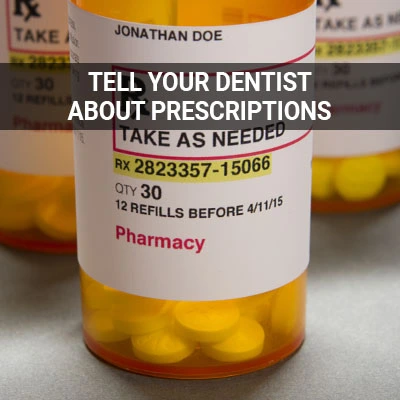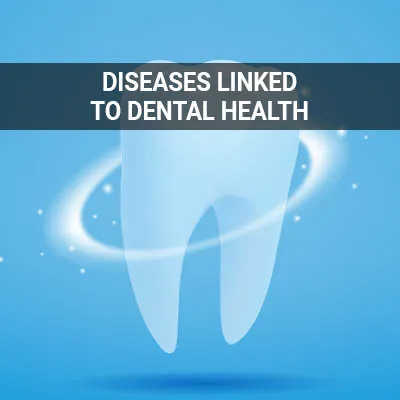Conditions Linked to Dental Health Alpharetta, GA
Many patients do not realize that their oral health affects every region of their body. As a result, oral health problems can spread to other body parts and trigger widespread health concerns. At the same time, chronic health conditions may also increase a patient's risk for dental troubles. Understanding how oral and general health affect one another allows us to provide targeted care and improve patient outcomes.
Information about conditions linked to dental health is available at Windward Parkway Dentistry in Alpharetta and the surrounding area. Our team provides personalized care that addresses your dental concerns. In addition, we offer a range of treatment options, including preventive services. Call us at (770) 814-6224 to learn more.
Causes of Dental Issues
We assess a patient's medical history and examine genetic and lifestyle factors that may affect their oral health. After a full evaluation, the provider develops a treatment plan that focuses on the patient's dental risks and concerns. Some genetic conditions that can affect the oral cavity include but are not limited to anodontia (the complete absence of teeth), hypodontia (or partial anodontia), amelogenesis imperfecta (defective or missing enamel), and dentinogenesis imperfecta (tooth discoloration or apparent translucency).
Habitual causes of dental issues include but are not limited to nail-biting (which can chip teeth and impact the jaw), teeth grinding and jaw clenching (which can cause teeth to chip or crack), overbrushing (which can damage the teeth and irritate the gums), and chewing ice (which can cause teeth or fillings to break). To break a nail-biting habit, patients may want to try bitter-tasting nail polishes or stress reduction techniques. Relaxation and mindfulness techniques may also help with teeth grinding and jaw clenching while brushing with a soft-bristled toothbrush can help prevent over-brushing. Patients tempted to chew ice may want to consider drinking chilled beverages without ice or with a straw.
“We assess a patient’s medical history and examine genetic and lifestyle factors that may affect their oral health.”
Cavities and Sensitive Teeth
Cavities develop when decay penetrates the top layer of a tooth, known as the enamel. Without treatment, decay can spread and trigger a soft-tissue infection. Decay might even spread to the jawbone. In addition, patients with untreated cavities may develop a tooth abscess. This condition can progress into a life-threatening infection.
Patients with chronic health conditions may be at a higher risk of cavities. Our team can determine how often each patient needs exams and X-rays. Routine screenings can help detect cavities in their early stages. We can also provide advice about tooth pain and sensitivity.
“… patients with untreated cavities may develop a tooth abscess.”
Cracked and Broken Teeth
Patients sometimes develop cracked or broken teeth after dental trauma. Car accidents or sports injuries can damage the patient's mouth. Without treatment, patients may lose a tooth. Broken teeth are also vulnerable to infection.
Our team can repair broken teeth. They clean and seal the tooth to prevent infection. Furthermore, restorative treatments can save a damaged tooth and prevent tooth loss. Keep in mind that tooth loss can increase a patient's risk of future dental problems. For example, patients who have lost a tooth may be more likely to develop jawbone loss or bite misalignment. Prompt dental care can help patients avoid these complications.
“Broken teeth are also vulnerable to infection.”
Check out what others are saying about our dental services on Yelp: Conditions Linked to Dental Health in Alpharetta, GA
Oral Cancers
Patients who use tobacco or nicotine products are at risk for oral cancer. Some patients may also develop oral cancers due to HPV infection. During each visit, the provider reviews the patient's risk factors for cancer. In addition, dental providers can perform oral cancer screenings in-office. Many forms of oral cancer are curable when detected early.
However, when oral cancer spreads, patients may develop life-threatening complications. Oral cancer may also cause jaw disorders and tooth loss. In addition, these dental troubles can trigger nutritional deficiencies and other health problems. Fortunately, oral cancer screenings can help patients protect their well-being.
“Many forms of oral cancer are curable when detected early.”
Questions Answered on This Page
Q. What lifestyle factors can affect my oral health?
Q. How do cavities affect my oral health?
Q. What are the health risks associated with broken teeth?
Q. What are some risk factors for oral cancer?
Q. What are the health risks of gum disease?
People Also Ask
Q. What preexisting conditions are linked to oral health?
Q. How is diabetes affected by oral hygiene?
Q. How do lifestyle choices affect dental health?
Q. How can I find out if my employer's plan covers dental treatments?
Gum Disease and Oral Health
Gum disease affects millions of Americans each year. Unfortunately, most people with gum disease do not realize the severity of this condition. If gum disease goes untreated, patients may develop receding gums and tooth loss. Gum disease can also cause widespread inflammation within the body. Inflammation can trigger a cascade of health problems. For example, researchers have found that untreated gum disease is a risk factor for cardiovascular disease. Gum disease might also increase a person's lifetime risk of dementia.
Chronic health conditions may boost a person's chances of developing gum disease. Pregnant patients and patients with diabetes are at especially high risk. Cancer patients can develop gum disease, too. Patients who are at risk for gum disease may need additional dental care. During an oral examination, patients can receive a gum evaluation, preventive care, and early interventions. These treatments help combat gum disease and oral inflammation.
“If gum disease is not treated, patients may develop receding gums and tooth loss.”
Frequently Asked Questions About Conditions Linked to Dental Health
Q. What health conditions can affect your oral health?
A. Several chronic health conditions can cause gum disease. Chronic illness may also increase your risk for tooth decay. Patients may need additional care if they have:
Pregnant patients also need specialized care. For example, pregnancy can increase a person's risk of oral infections and cause gum inflammation.
Q. What are the health risks of poor oral hygiene?
A. Poor oral hygiene may increase your risk of:
Over time, untreated dental problems might cause:
Oral health problems can have a widespread, devastating impact on a person's health. We can help patients improve their oral health and protect against complications.
Q. How can I protect my oral health?
A. Preventive care can combat tooth decay and gum disease. Experts recommend that children and adults brush their teeth twice daily, floss once a day, and rinse the mouth often with plain water. Avoid sugary, sticky foods as they feed decay-causing bacteria and trap plaque against the gumline.
Q. What is the importance of routine dental exams and cleanings?
A. Dental exams help us properly assess a patient's current oral health status and determine the treatments they need. A twice-yearly dental cleaning removes plaque and tartar before decay can set in. Cleanings also offer the dentist an opportunity to check for developing problems. In addition, early cavity treatment may prevent future health issues.
Q. What should I do if I develop tooth pain or gum recession?
A. Report changes in your oral health to a dental provider right away. Tooth pain can be an early warning sign of serious dental problems. The sooner patients receive treatment for these issues, the better their outcomes. We can determine what treatment is right for you.
Dental Terminology
Learn More About Complete Health Dentistry Today
If you are looking for information or advice regarding complete health dentistry, call us at 770-814-6224.
Helpful Related Links
- American Dental Association (ADA). Glossary of Dental Clinical Terms. 2024
About our business and website security
- We accept the following payment methods: Cash, Check, Discover, MasterCard, and Visa
- We serve patients from the following counties: Fulton County
- We serve patients from the following cities: Alpharetta, Bethany Crossing, Herring Township, and Milton
- Norton Safe Web. View Details
- Trend Micro Site Safety Center. View Details
Back to top of Conditions Linked to Dental Health










